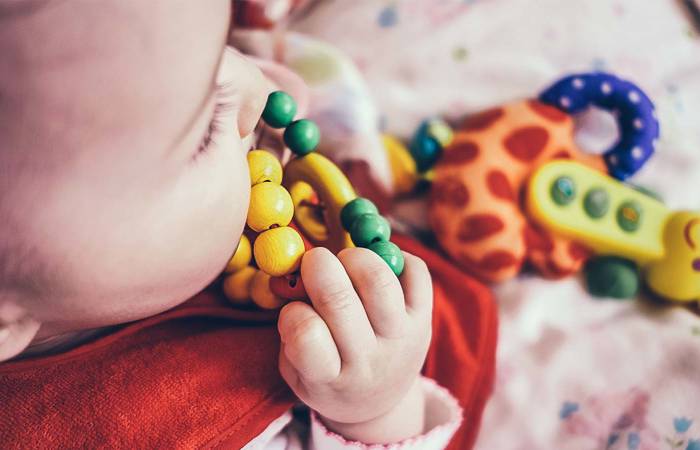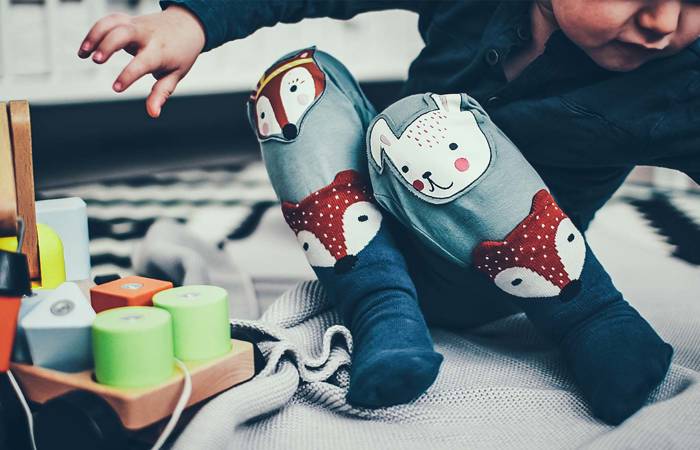Like what you see?
Sign up to receive more free parenting advice.
Thank you for subscribing to our newsletter!
Early Learning
A child’s genes are the blueprint for their early development, but it’s the experiences and close interactions that children have in their early years that can really shape brain development.
It will come as no surprise that the home learning environment features most strongly in the research as being the key to children’s optimal language, physical, intellectual and social development.
As experts in early learning, we work closely with academics and early years practitioners to develop the evidence to underpin the best advice for families about what makes the most difference in the first five years.
This discussion shares what the research highlights about the importance of the home learning environment in supporting children’s language development. This aspect of child development is one of the most important steps parents and carers can take in ensuring their child’s progress and readiness for school.
Combine home learning and high quality early learning
However, international research points to the combination of providing children with access to a high-quality early learning program as well as having a stimulating home learning environment in making sure parents and carers have the confidence that they are giving their child the best possible start in life.
The National Quality Framework - which all Australian early learning providers work under - requires educators to develop collaborative relationships with families to help achieve quality outcomes for children. It’s this mutual understanding and sharing of advice and information between families and educators that can really turbo-boost family confidence about how to best help their children’s development in the early years.
When a child is learning to talk, they are developing their social, emotional and learning skills, enabling the expression and communication of their feelings, cultivating their problem solving and thinking skills, establishing relationships and being able to navigate new experiences.
Not only are human brains more receptive to learning language earlier in life but a young child’s home learning environment is typically set up to support the sorts of language activities that will meet a child’s developmental level.
Parents and carers will often instinctively speak to their children in ways that are not too simple or too complex for their child’s particular stage of development, naturally following and extending on their child’s lead. This means that during the early years, with more time available for one-on-one language learning activities at home, children are exposed to lots of opportunities to learn about the sounds, syllables, words, phrases, and sentences that make up their language.
Reading to very young children, and reading books with toddlers and pre-schoolers, presents a gateway to the type of serve-and-return conversations between children and their parents and carers, essential to children’s language development.Dr Kate Liley
Video Gallery
See all videosThe role of parents and home learning - Dr Kate Liley
It's no surprise the home learning environment features in research as being key to children’s optimal language, physical, intellectual and social development.
The role of parents and home learning - Dr Kate Liley
A child’s genes are the blueprint for their early development, but it’s the experiences and close interactions that children have in their early years that can really shape brain development. It will come as no surprise that the home learning environment features most strongly in the research as being the key to children’s optimal language, physical, intellectual and social development.
Developing Your Child's Language - Dr Kate Liley
A good home learning environment with activities like books, conversation, letters, numbers and singing, means parents are giving children the best start in life.
Developing Your Child's Language - Dr Kate Liley
If parents are providing a good home learning environment for children with lots of different activities like sharing books and having conversations, letters, numbers and singing, with some early learning in the mix, parents can be confident they're giving their children the best start in life.
Listen and be interested in your child
However, the home learning environment extends beyond a child’s experiences within the home with their family to being out and about in their local communities.
Providing a child with the best possible home learning environment includes engaged and responsive parenting as well ensuring the safety and stability of the home environment for the child, especially for families who may be experiencing vulnerability.
We know that children will feel most safe, secure and successful when the adults in their lives are responsive, attentive and supportive, demonstrated when adults listen to children, and are interested in what children do, say and produce.
This means that a family’s socio-economic circumstances will have little to do with a child’s future success when parents and carers actively engage with their child’s development, when they provide a language-rich, nurturing environment that enables their child to be curious and confident about the world around them.
In this way, the research evidence is very clear that what parents do with their children in the home learning environment is more important than who parents are.
When parents and carers provide their children with a caring and stable home learning environment, the types of activities proven to support a child’s language development are reading together with a parent or carer, painting and drawing, playing with letters, numbers and shapes, singing songs and nursery rhymes and visiting the library.
Although there will be other activities available to children and their families at home, it’s important for parents and carers to know that a focus on these language and literacy activities that have the greatest impact on later child outcomes.
The importance of reading
Reading to very young children, and reading books with toddlers and pre-schoolers, presents a gateway to the type of serve-and-return conversations between children and their parents and carers, essential to children’s language development.
When parents and carers take the time over a shared book to discuss what’s on the page and talk to their child about the words, images and story they are reading together, children’s expressive language ability can be greatly boosted.
Research indicates that children who have been read to using an active or ‘dialogic’ reading technique have more developed language skills than those children who are only asked to listen as the adult reads.
A simple way to prompt this type of reading with your child is to ask open-ended questions about what you both see on a page like “What do you think is going here?”, “Why do you think that happened?”, “Where do you think they are going?”.
Sharing songs and nursery rhymes with children is another playful way to introduce new words, sounds and the rhythm and structure of language. Supporting children to understand the sequence of a story is important to a child being able to repeat a rhyme or longer story and to anticipate what comes next. Counting and playing games with numbers with young children is similarly helpful in helping children to develop their numeracy skills.
Both the quality and quantity of words a child hears in the early years is important with studies describing the development of children’s vocabulary over time. For example, we know that children’s vocabulary at around 30 months is influenced by the quantity of words in the year before.
At 42 months, children’s vocabulary is influenced by parents and carers using more sophisticated language in the year before.
By the time children are four and half years old, children are reaping the benefits of the stories and conversations they’ve engaged with over the past year in being able to understand and talk about things in the past and in the future.
In essence, when parents and carers talk, read and play with their children every day, they are setting their children up for successful learning and life.
If you are looking for more ideas and activities to support your child’s early learning, talk to your child’s educator as they will be happy to exchange ideas with you on supporting your child’s language development.













